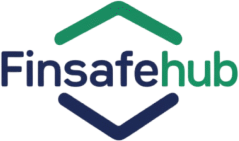FinSafe Trivia
You receive a call from someone claiming to be from your bank, urgently asking for your full card number. What do you do?
Correct!
Wrong!
Never share sensitive info over the phone unless you initiate the call. Always verify using official channels.
Which of these URLs is most likely legitimate?
Correct!
Wrong!
Scammers often use fake domains. Always check that the root domain (e.g., paypal.com) is real and secure.
Scammers often use fake domains. Always check that the root domain (e.g., paypal.com) is real and secure.
Correct!
Wrong!
Poor grammar, too-good-to-be-true offers, and urgent links are classic scam signs. Don't engage.
Which of these is a common red flag in phishing emails?
Correct!
Wrong!
Scammers often use generic greetings because they don’t know your name.
Q5. Your friend on social media sends you a message asking for money urgently. What should you do?
Correct!
Wrong!
Accounts can be hacked. Always verify through a different channel before sending money.
Q6. Which password is strongest and safest to use?
Correct!
Wrong!
Strong passwords include a mix of upper/lowercase letters, numbers, and symbols. Use a password manager.
Q7. You’re shopping online and find a deal that looks too good to be true. What do you do?
Correct!
Wrong!
Verify unfamiliar sites before entering any payment info. Look for HTTPS and legitimate reviews.
Finsafe Hub Trivia 1

